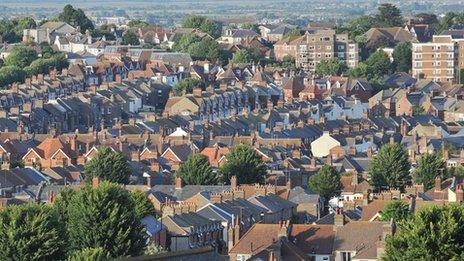Welfare cuts 'mean 3,000 south Wales valleys jobs to go'
- Published
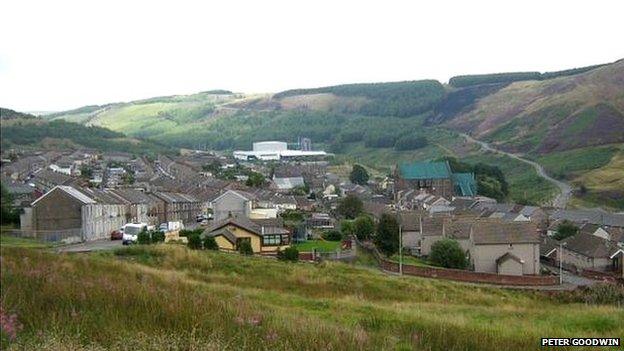
Maerdy in the Rhondda, where the average loss of income is estimated at over £1,000 per working adult each year
The knock-on effect of welfare cuts could lead to the loss of 3,000 jobs in the south Wales valleys, a report says.
A study for the Industrial Communities Alliance, external (ICA) in Wales found the valleys had been harder hit by welfare reform than almost anywhere in the UK.
The region can expect to lose around £430m each year, with the worst affected areas losing £1,000 per adult.
The Department of Work and Pensions said welfare reforms would improve the lives of the poorest families.
Nine local authorities are members of the ICA in Wales - Blaenau Gwent, Bridgend, Caerphilly, Carmarthenshire, Merthyr Tydfil, Neath Port Talbot, Powys, Rhondda Cynon Taf and Torfaen.
The report by Sheffield Hallam University said the average loss of income per adult of working age would be £650 once all the welfare reforms were in place.
However in the worst hit communities of Maerdy and Penywaun in Rhondda Cynon Taf and Gurnos in Merthyr Tydfil, the loss was as high as £1,000.
'Struggling to survive'
The authors said the loss from welfare reform was four times higher than money coming in for economic development via the European Union programmes, even though the valleys have been given top-priority status for regional aid.
The cuts were expected to have an impact on local consumer spending, supporting fewer jobs in the local economy, with the report estimating around 3,000 jobs in consumer services might be expected to be lost.
They also calculated that creating 100,000 jobs in the area would deliver the same reduction in the budget deficit through higher tax revenue and lower benefit claims.
Such a change would need the Welsh economy to grow by 3 to 3.5% over the next five years.
Professor Steve Fothergill, co-author of the report, said such growth was "by no means unachievable" if the right government policies were in place.
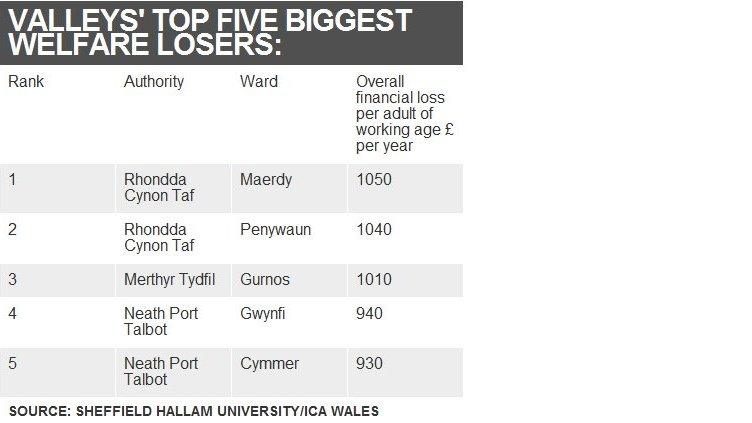
Jane Ward, chair of the ICA (Wales) and a councillor for Penrhiwceiber in the Cynon Valley, said her own ward was one of those hit very hard by reforms.
She said: "Here and across the valleys, the reforms make life more difficult not only for so many households but also for local businesses that are struggling to survive.
"There are already too many empty shops and offices in our towns."
'Safety net'
A spokesman for the UK government said action had been to help people be more financially secure, including increasing tax-free personal allowances and freezing council tax and fuel duty.
"Our welfare reforms will further improve the lives of some of the poorest families in our communities with Universal Credit making three million households better off and lifting up to 250,000 children out of poverty," said the spokesman.
"We continue to ensure there is a safety net in place, spending £94bn a year on working age benefits to support millions of people who are on low incomes or unemployed so they can meet their basic needs."
- Published14 March 2014
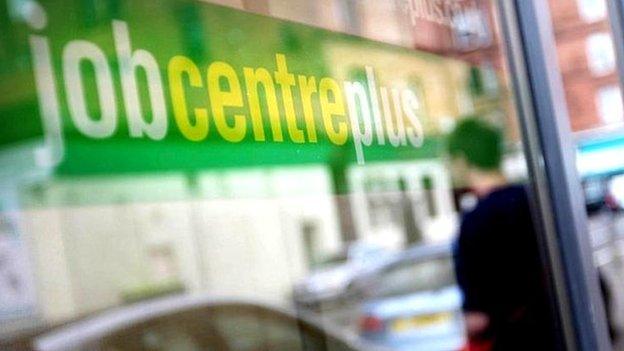
- Published2 March 2014
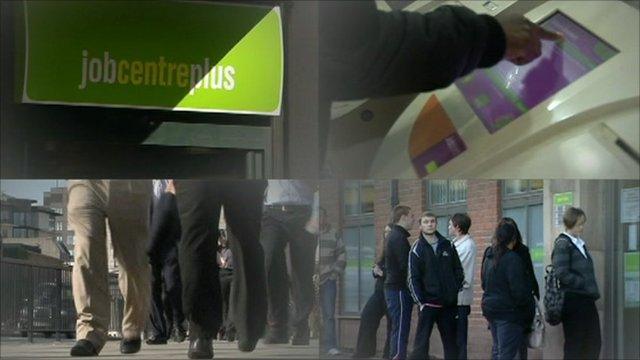
- Published17 February 2014

- Published10 March 2013
